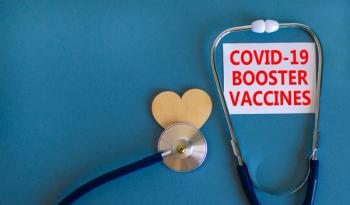
What Causes Long COVID?
Findings from a cros-sectional study reported by Yale and Mount Sinai researchers last week in a preprint last week linked long COVID to low levels of cortisol, the stress hormone, and possibly to reactivation of latent Epstein-Barr virus infections. Eric Topol called the study one of the best of long COVID so far.
There are lots of theories, but the causes of long COVID are far clear. But results from a cross-sectional
“Participants with long COVID demonstrated striking decreases in systemic cortisol levels, decreases which remained significant after accounting for differences in individual demographics and sample collection times,” wrote
Eric Topol, a professor at Scripps Research who via Twitter and other social media has emerged as a leading expert voice on COVID-19, described the preprint last week as a “one of the best studies on long COVID.”
Iwasaki and her colleagues also found evidence of reactivation of latent herpesvirus infections among long COVID patients.
Cortisol is hormone produced by the adrenal glands that sit on top of the kidneys. It is commonly referred to as stress hormone because levels go up as part of the body’s fight-or-flight response. There are cortisol receptors throughout the body.
Persistently high cortisol levels are unhealthy — they keep the body in a high-alert mode — but low levels are found in conditions such as chronic fatigue syndrome.
Topol wrote in
The study by Iwasaki and her colleagues is a joint effort by researchers at Yale and the Icahn School of Medicine at Mount Sinai in New York. This particular analysis included total of 215 people: 99 identified as having long COVID, 39 people who had COVID-19 but no persistent symptoms, 40 healthy, unvaccinated people who had COVID-19 and 40 healthy controls who hadn’t had COVID-19.
Serum cortisol levels were highest in the group that hadn’t had COVID-19, lower in the group that had had COVID-19 but no persistent symptoms and lowest among those with long COVID. Normally, low cortisol levels are associated with low levels of
“Our current finding of persistently decreased cortisol production in participants with long COVID more than a year following acute infection warrants expanded,” Iwasaki and her colleagues wrote in the preprint.
The possible connection between long COVID and reactivation of herpesvirus and the Epstein-Barr virus, a type of herpesvirus, was not a complete surprise. Previous research had identified a possible role for reactivation of latent infections. Other research has detected Epstein-Barr virus during the acute phase of COVID-19 in hospitalized patients, presence of the virus has been linked to the development of persistent symptoms.
In this study, a battery of tests related to antibodies against the Epstein-Barr virus showed higher concentrations of antibodies against Epstein-Barr in the people with long COVID. The results, wrote Iwasaki and her colleagues, “suggest that herpesvirus reactivation is not incidental following a SARS-COV-2 infection,” naming the virus that causes COVID-19.
They also reference recent findings that have linked Epstein-Barr infection to the development of multiple sclerosis.
“Whether EBV (Epstein-Barr virus) reactivation may also predispose people with long COVID to the development or exacerbation of autoimmune pathologies, as has been recently reported for people with multiple sclerosis will, require extensive longitudinal monitoring and surveillance of people with long COVID,” Iwasaki and her co-investigators wrote.
Newsletter
Get the latest industry news, event updates, and more from Managed healthcare Executive.

























